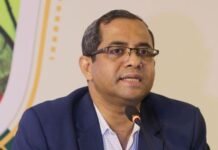Originally posted in The Financial Express on 12 March 2022

Expansion of the nascent renewable-energy sector is stymied by a prohibitive 37-per cent duty and taxes levied on import of solar inverters, stakeholders say, thus hindering the much-hyped green option.
The taxes came into effect in the current fiscal year as the National Board of Revenue (NBR) didn’t include the item in a statutory regulatory order for duty/tax-exempted electronic products and equipment.
In the past, such taxes were never imposed on inverter, except in the current fiscal year, M A Taher, an executive member of Bangladesh Solar and Renewable Energy Association (BSREA), told the FE.
The BSREA in a recent letter to the NBR demanded withdrawal of the duties and taxes on the product to help attain the target of generating 40-per cent electricity from renewable sources by 2041.
At the import stage, presently 10-per cent customs duty, 15-per cent value-added tax, 5.0-per cent advance income tax and 5.0-per cent advance tax are applicable, compounding the rate at 37 per cent.
Association president Dipal Chandra Barua says renewable energy plays a significant role in preventing environmental pollution and climate change.
He wrote that inverters are very important equipment in solar-energy production both at large power plants and small-scale plants like solar rooftop power, solar irrigation pumps.
Barua in his letter mentioned that presently there are some 1.6 million irrigation pumps in the country of which 1.3 million run by diesel. The government has planned to convert all the diesel-run pumps to solar-powered ones to cut the diesel-import costs.
Already six million solar-home systems are installed in the country, which brought nearly 35 million people under electricity coverage, while installation of rooftop solar system is gaining momentum due to introduction of net metering policy.
“No international-standard solar panel and solar inverters are manufactured in Bangladesh, thus the sector people are import-dependent for these items,” he notes.
He further wrote that if the 37-per cent duties and taxes on solar inverters remained effective, importers would have to spend additional money that will hinder expansion of solar-power generation in the country.
The sustainable development goals and the target on intended nationally determined contributions would not be achieved, Mr Barua added.
Presently, 781 megawatts of green electricity is being generated from renewable, of which 547 MWs come from solar and 230 MWs from hydropower.
It’s a universal drive now to espouse green development and economic activities in order to save the planet from disastrous effects of global climate change, to which Bangladesh is a most vulnerable country in respect of both natural calamities and sea-level rise.




